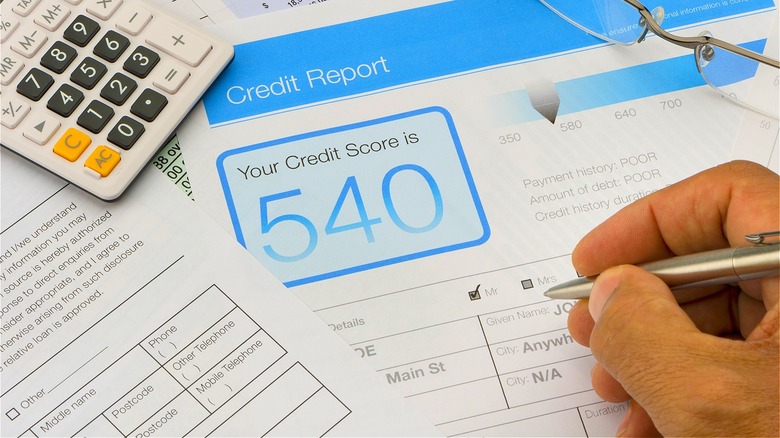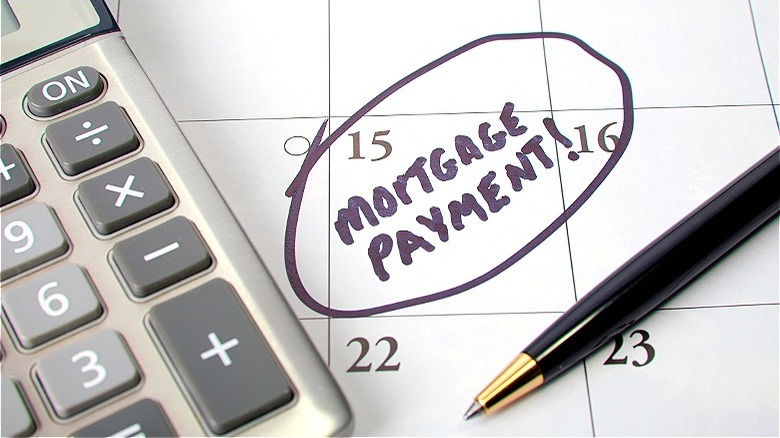What Is Considered A Bad Credit Score?
A credit report offers a snapshot of your credit history, including the types of accounts you've had, your credit limits, and your payment history. The three main credit bureaus Equifax, Experian, and TransUnion distill information from credit reports into one crucial figure: your credit score. A credit score is a three-digit number that falls between 300 to 850, with 300 being the worst and 850 being the highest possible credit score you can attain. Being that there are three different credit bureaus, as well as two different credit modeling systems in FICO and VantageScore, credit scores for the same person can fluctuate to some degree, but they'll generally be close. For example, an individual might score 726 with TransUnion but 722 with Experian. In general, though, if your credit score is bad or good at one credit bureau, it'll likely fall in the same range at another.
Lenders set their own standards as to what's considered an acceptable score, but typically, a credit score of 720 or higher is considered excellent, while a score in the 690 to 719 range is merely good. Credit scores ranging from 630 to 689 are considered fair, and finally, scores below 630 are seen as bad credit scores in the eyes of most institutions. That said, some consumers with fair credit could find themselves lumped in together with the "bad" group. You'll want to stay at or above the 670 level to avoid being viewed as a poor credit risk.
Why credit scores matter
At the risk of stating the obvious, a bad credit score can make it more difficult to get approved for new credit cards and loans, which can impede necessary purchases in life, like a vehicle or a home. Creditors will view consumers with low credit scores as less likely to be willing or able to pay back the debt, so they may refrain from making the loans to begin with. Borrowers with lower credit scores who do manage to secure a loan will likely find themselves paying additional fees and/or much higher interest rates than borrowers with a good credit history.
Additionally, when looking for new digs to rent, landlords may be reluctant to rent a home or an apartment to potential tenants with low credit scores for fear of not receiving rent payments on time or at all. In the majority of states, you could also face higher rates for insurance coverage such as homeowners, car, and even health insurance.
Finally, did you know a poor credit history could even affect your ability to get a job? Employers may look at your credit history, and thus credit score, to get a sense, for example, of your ability to manage money, which would be naturally important for a role in finance. Your credit history may also provide the company with insight as far as your level of responsibility and financial stability, which may prove decisive if the role is in management or leadership, or involves a high level of security.
How to improve your score
The good news, is that it's never too late to improve a bad credit score. Payment history is perhaps the most important factor when determining credit scores, so you'll always want to pay your bills on time. Forgetful types might consider setting up autopay and/or electronic calendar reminders to facilitate timely payments.
With regard to credit card bills, in particular, pay as much as you can afford each month — ideally, the entire balance, if possible. Just making minimum payments won't only cost you a small fortune in interest payments, but it will also increase your credit utilization ratio. That figure represents how much of your total available credit you're using at any one time and a high utilization ratio is a red flag on your credit report.
Another great tip to protect your credit score is to regularly check your credit report for mistakes. Consumers are entitled to view free copies of their credit reports from the three major credit bureaus as often as once per week, so use that opportunity to check for erroneously reported late payments or activity that doesn't belong to you. Finally, if you've recently gone through a credit-wrecking event like bankruptcy or foreclosure, consider getting a secured credit card, which is guaranteed with a cash deposit equal to the card's spending limit. Aside from that, a secured credit card functions just like a normal credit card, and regular on-time payments can start to rebuild your credit score in as little as a few months.


